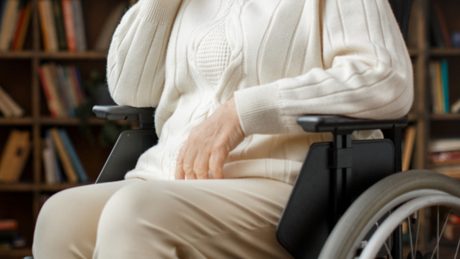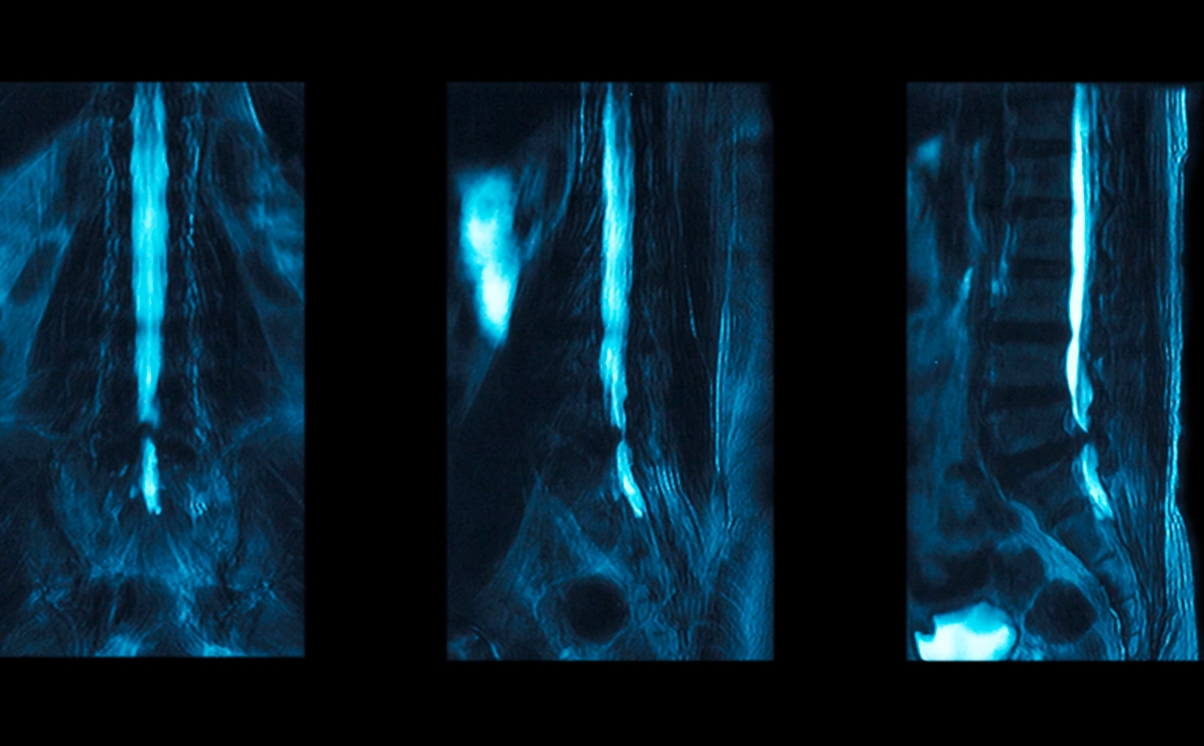A 76-year-old woman who sustained a spinal cord injury following the mismanagement of a spinal infection secured a £3.65m settlement to ensure care for the rest of her life.
Investigations revealed that the correct treatment had not been provided, and the woman (‘L’) sought Stewarts’ help in obtaining compensation.
Events leading to claim
In May 2015, L began to experience severe back pain. She then sustained a fall and was taken to the Accident and Emergency Department of her local hospital. Tests revealed an infection, and she was treated with oral antibiotics.
Whilst in hospital, L’s mobility decreased and a CT scan was therefore performed. This revealed no abnormalities but L was treated for an assumed spinal infection (discitis), and intravenous antibiotics were commenced.
Following an improvement in her lower limb strength, L was discharged on 5 June 2015 with a plan to continue with IV antibiotics for eight to 12 weeks followed by oral antibiotics for up to six months. However, oral antibiotics were never prescribed.
On 25 July 2015, L’s legs gave way while at home. An ambulance was called, and she was readmitted to hospital.
Over the following days, L complained of increasing heaviness and numbness in her legs. By 4 August 2015, L had severe leg weakness, and an urgent MRI was recommended. The hospital did not however have a bariatric scanner on site.
On 7 August 2015, a CT scan was carried out. A spinal abscess at T4 was suspected. On 14 August 2015, L was transferred to another hospital for an MRI scan, and the diagnosis was confirmed. A decision was taken not to operate due to L’s comorbidities and the extent of her neurological deficit.
L was transferred for spinal rehabilitation. During this she regained some motor power in her lower limbs but required a wheelchair to mobilise. She had altered bowel function and required a catheter.
When L returned home, she was reliant on carers to hoist her out of bed. Due to an insufficient care package and loss of confidence in her carers, L became bedbound.
Initial legal action
Katherine Fitter carried out the initial investigations into L’s case. Expert evidence suggested that the failure to give oral antibiotics as per the recommendation when L was discharged amounted to a breach of duty. Further, when L was admitted to hospital on the second occasion, L should have been urgently referred for an MRI scan. L would have avoided all neurological deficits if the correct treatment had been provided.
Admissions and settlement
Following the issue of court proceedings, Amy Heath took conduct of the matter. A defence was served in which the defendant admitted liability in full. Investigations into the appropriate amount of damages payable began, and interim payments were secured.
The interim payments were used to fund rehabilitation for L at the Wellington Hospital to see whether she could improve her function and therefore independence. While she was undergoing rehabilitation, adaptations were carried out to L’s property and a case manager was appointed to implement a care package that would allow her to begin mobilising out of bed and accessing the community. Improvement of L’s quality of life was a key focus as she had been bedbound for more than four years.
At a settlement meeting in 2021 damages in the sum of £3.65m were agreed. This will ensure that L’s needs are met for the remainder of her life.
Testimonial
L said: “I’m very grateful to Stewarts and especially to Amy who gave me all the time, attention and explanations that I needed. Everything was carried out very efficiently. I can’t commend Stewarts’ staff enough for their kindness and caring. I’d recommend them to anybody who needed help in a similar situation.”
M, L’s close friend and attorney, provided support and assistance to L during the course of the case and beyond.
M said this: “Agreeing the settlement has provided a huge level of reassurance for myself and L after a long period of uncertainty. It is a real weight off my shoulders to know that the funds are available to ensure a good quality of life for L.
The expertise, professionalism and empathy displayed by Stewarts has been impressive throughout the legal process. Through the initial rehabilitation to the settlement meeting amidst the additional stresses brought by the pandemic, they have been excellent. It is impossible to turn back the clock, but the settlement has made looking forward to the future that much easier.”
This article was co- written by our Paralegal Gabriel Moussa
You can find further information regarding our expertise, experience and team on our Clinical Negligence pages.
If you require assistance from our team, please contact us.
Subscribe – In order to receive our news straight to your inbox, subscribe here. Our newsletters are sent no more than once a month.








